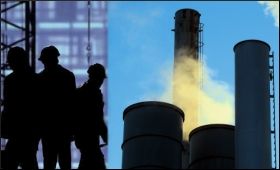|
|
|

|
RBI Rate hike will hurt growth: India Inc
|
|

|
|
| Top Stories |
 |
|
|
|
SME Times News Bureau | 27 Jul, 2011
Disappointed over the Reserve Bank of India's decision to hike policy rates for the 11th time in 15 months, India Inc warned Tuesday that the move might pull down economic growth below eight percent.
"With the growth momentum already under pressure, this move will further hurt future prospects," said Rajiv Kumar, secretary general of the Federation of Indian Chambers of Commerce and Industry (FICCI).
"Even the projected growth rate of eight percent for the year 2011-12 now looks difficult to achieve," he said.
In its latest economic outlook survey, FICCI has lowered the GDP growth projection for the current fiscal at 7.9 percent. Official estimate puts the growth projection at nine percent (plus/minus 0.25 percent).
The RBI Tuesday hiked key policy rates by 50 basis points in the 11th such exercise since January 2010 to tame inflation. The repurchase rate, the interest the country's central bank levies on short-term borrowing by commercial banks, has been hiked to 8 percent from 7.5 percent and reverse repurchase rate, or interest paid on short-term lending, raised to 7 percent from 6.5 percent.
Kumar said the rate hike has come as a "major disappointment to the industry".
"In the trade-off between growth and inflation, the RBI has clearly decided to sacrifice growth. Thus, it may have been more consistent on RBI's part to lower the growth estimate to below 8 percent rather than sticking to it," the FICCI secretary general said.
Reacting to the RBI move, director general of the Confederation of Indian Industry (CII) Chandrajit Banerjee said a more than expected increase in the policy rates would hurt business sentiments.
Most analysts and industry associations were expecting 25 basis points increase in repo and reverse repo rates. However, the Reserve Bank has acted more aggressively and hiked the rates by 50 basis points.
With 11 consecutive interest rate increases in the last 15 months, the RBI has emerged as the most aggressive central bank, Banerjee said.
"At a time when all available date indicates a clear slowdown in industrial and economic output, this is a matter of great concern since there could be a tipping point beyond which salvaging a downward spiral of growth could be an arduous task," said Banerjee.
Industry forums said the rate hike would not curb inflationary pressure as it was mainly because of a demand-supply mismatch.
"It is imperative now that non-monetary measures are rapidly deployed to deal with supply side issues, which continue to contribute to inflationary pressures," the CII director general said.
Inflation has remained stubbornly high despite an aggressive monetary tightening by the Reserve Bank. In March 2010, when the RBI started to raise policy rates in the current rate hike cycle, the headline inflation based on wholesale price index was 10.4 percent.
It was almost in double digits in most part of last fiscal and stood at 9.4 percent in June 2011, according to the latest official data released.
|
SEE ALSO
|
| |
|
|
|
|
|
|
|
|
|
|
|
|
|
|
| |
| Customs Exchange Rates |
| Currency |
Import |
Export |
US Dollar
|
84.35
|
82.60 |
UK Pound
|
106.35
|
102.90 |
Euro
|
92.50
|
89.35 |
| Japanese
Yen |
55.05 |
53.40 |
| As on 12 Oct, 2024 |
|
|
| Daily Poll |
 |
 |
| Do you think Indian businesses will be negatively affected by Trump's America First Policy? |
|
|
|
|
|
| Commented Stories |
 |
|
|
|
|
|
| |
|